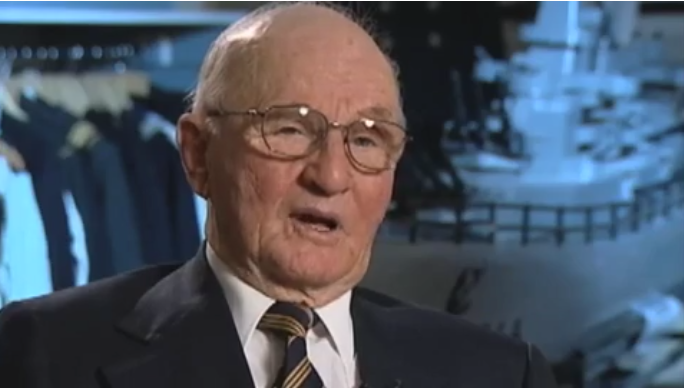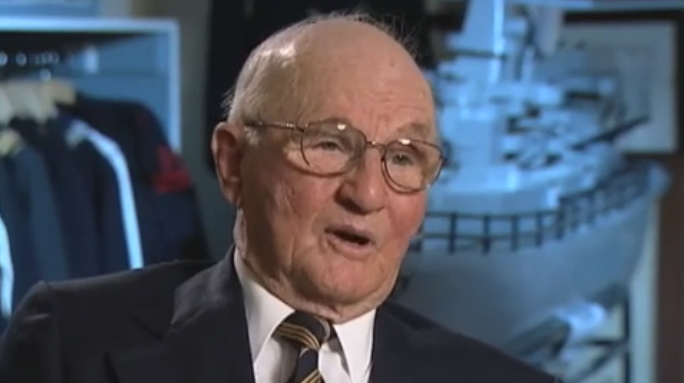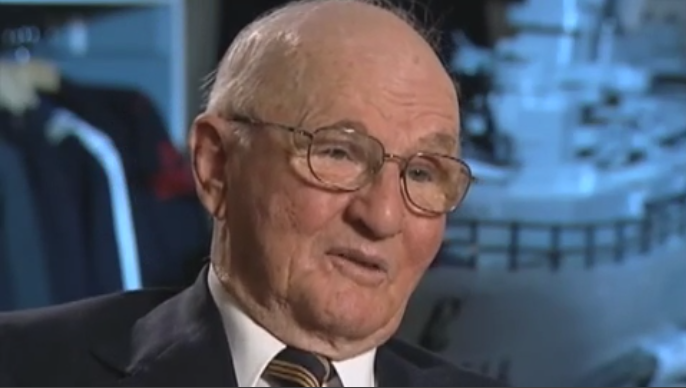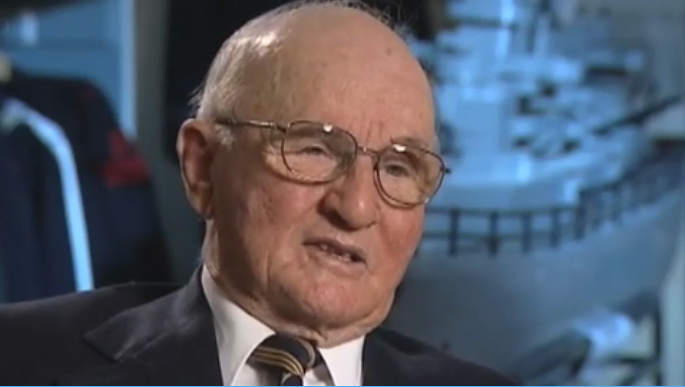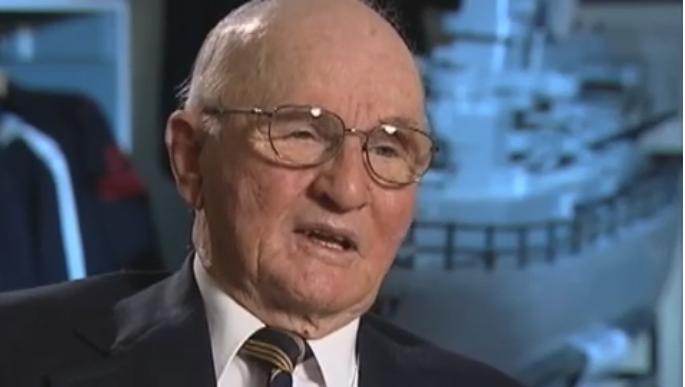We had a bit of basic training in, in Rosetown,
just how to march. We were there a month or two and then
they sent us to Petawawa, Ontario, and we did a little more
basic training and no weapons of course. End up with two
or three old Ross rifles from the Boer War and we were
there a couple of months and then November the 13th,
they loaded us up and went to Halifax and shipped us
overseas with no weapons of any kind, I don't think.
And we got over to England and we ended up getting
the Enfield rifle, which was quite a big step up, like you know.
Then of course we got the Bofors gun, we were in Colchester,
England. They're a 40mm gun and, and we'd follow the
head gun drill, hours and hours on end. Like you know,
and to make up a crew there was fourteen or fifteen men
and they all had to work together and the skeleton crew
was five men and you could put it into action, without
the predictor, with five men. And the boys got pretty good,
the young fellas like you know? And being young and,
and catched on quick and that's when they first made me an
NCO and I got along good with the guys, sometimes the officers.
And then the spring of 1942, they loaded us up and sent us
to Ireland for a firing range and we were there six weeks
firing at, they called them drogues or sleeve pulled behind
an aircraft. And it, it was a slower aircraft, I don't know
whether it was an Avro Anson or some aircraft. And they had
a cable, would be possibly 100 yards or 75 yards long.
And they had a sleeve that would open at the front and kind
of closed at the back and he was, as he flew across his
sleeve was pulled behind him, about 75 yards and our job
was to take aim on that sleeve and fire at that sleeve.
And once or twice, the guys in training, every aircraft went
over, we would say "Plane right on, on" and once or twice,
I think over in Ireland, they, they pulled on the plane
instead of the sleeve would just, yeah...
"See that pile," I said, "I just dodged and not going to do it."
But that only happened once I think or twice that I seen, but no.
But it was just a way of learning how to follow the aircraft
a certain speed. And you took bearings on it and everything
was by the clock. A plane left at 9 o'clock, or a plane
at 12 o'clock or a plane right at 3 o'clock and then you,
you took it on the plane and then you increased the bearing
by you know, you tried to shoot in front of whatever you were
shooting, the aircraft. And so the pilot had to fly through it
and, and so it was all training, like you know.
And being a young outfit like we were, most of the younger
ones put guns, learned pretty quick and they were a pretty
good outfit, for some of the ones with older... Like the young
people pick it up so much better. And then they sent us
back to Colchester, then from there to gun sites all over
the south of England. We used to, eight hours a day of training,
you know and for three years, so we were probably some
of the best trained troops in, in, in the army.
And we trained in England, Ireland, Scotland, and Wales.
We had commando courses. We spent six weeks in Wales
under English instructors and they were, had to, they dropped
us off 20 miles out or 25 kilometres from then, we had to
march back and somebody else was trying to you know,
stop us from coming back. And then they had these obstacle
courses and they had wires that we had to crawl under and
they had English shooting live bullets over us, so we didn't
get up... yes, that's a fact! And so that we didn't, you know,
some of the guys didn't get down slow enough, well they'd
hear whistle of a bullet, well they got down a little more.
But that was part of the training. And then they had bayonet
training and old English instructors. But they, they were
taught to be tough and you know, they'd, they'd have a sack
hanging there and they'd, they'd, you're supposed to run
a distance. The old sergeant, blood and guts and you know,
you know he'd tell you how to do it. Well we never, we never
needed that or anything like that, but that's, that's part
of the training. No, they, we had all extensive training.



